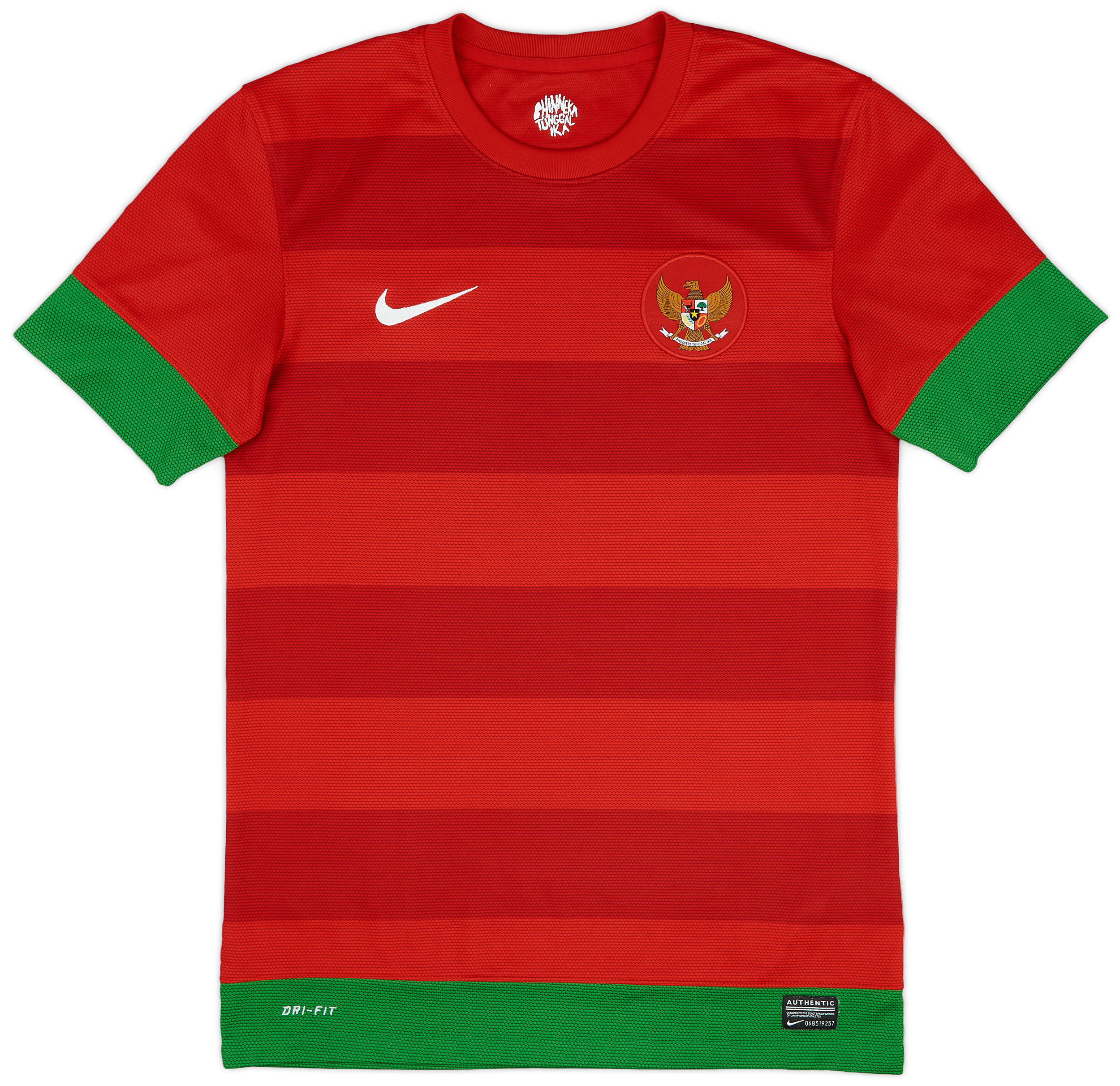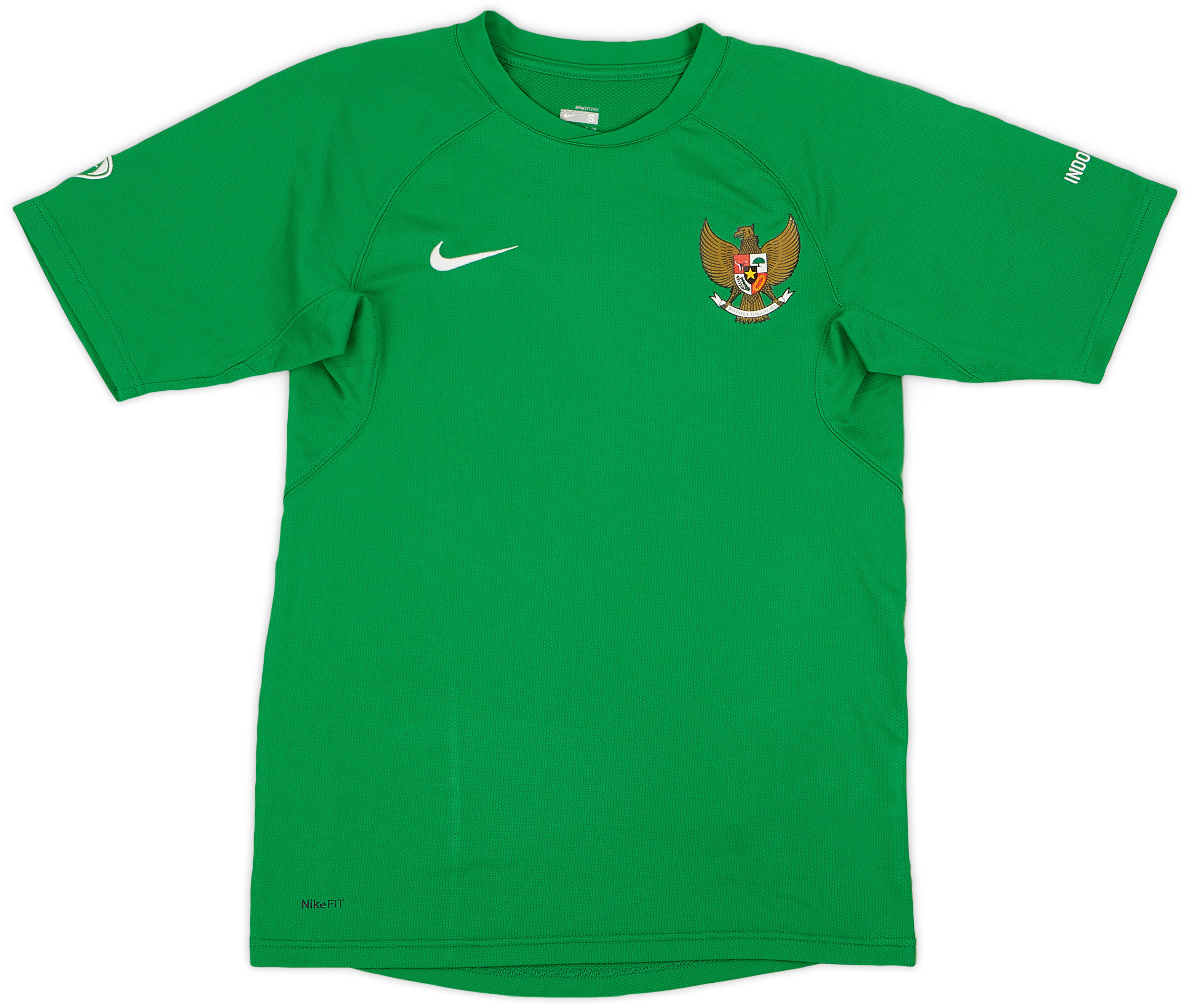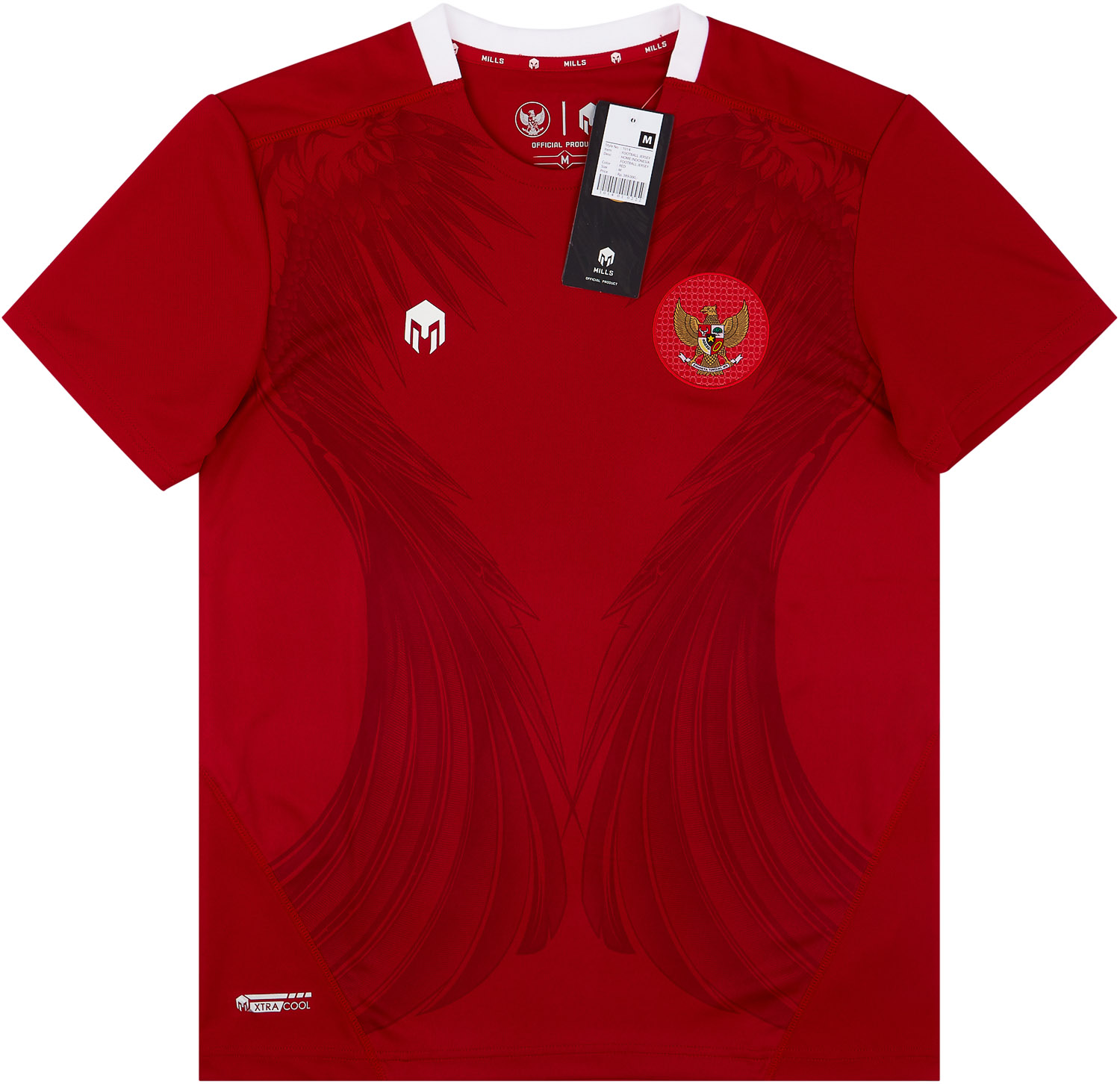Indonesia
Introduction The retro national football team shirt of Indonesia is a unique and iconic piece of football history. This shirt, with its distinct design and colors, represents the rich heritage and proud history of Indonesian football. In this article, we will explore the team’s history, achievements, notable players, and the significance of this retro shirt […]
2012-14 Indonesia Away Shirt (M)
148.99£ - ca: €176
2012-14 Indonesia Home Shirt (M)
148.99£ - ca: €176
2012 Indonesia Home Shirt - 9/10 - (S)
106.99£ - ca: €126
2007 Indonesia Third Shirt - 8/10 - (S)
106.99£ - ca: €126
2012 Indonesia Home Shirt - 8/10 - (M)
106.99£ - ca: €126
2022-23 Indonesia Olympics Home Shirt
35.99£ - ca: €42
2020-21 Indonesia Home Shirt
35.99£ - ca: €42
Introduction
The retro national football team shirt of Indonesia is a unique and iconic piece of football history. This shirt, with its distinct design and colors, represents the rich heritage and proud history of Indonesian football. In this article, we will explore the team’s history, achievements, notable players, and the significance of this retro shirt to the fans of Indonesian football.
Team History
The Indonesian national football team, also known as Tim Nasional Indonesia (TNI), was formed in 1934, during the Dutch colonial period. The team was originally called “The Dutch East Indies” and was composed of players from various Dutch colonies, including Indonesia. In 1947, the team changed its name to “Indonesia” and has since represented the country in international football competitions. Indonesia has a rich football history, having participated in four FIFA World Cup qualifiers, and has won the ASEAN Football Federation (AFF) Championship twice, in 2000 and 2010.
Achievements
During the era when the retro national football team shirt of Indonesia was in use, the team achieved several significant milestones. In 1976, Indonesia finished 4th in the Asian Games football tournament, and in 1986, the team won the bronze medal at the Asian Games. Indonesia also participated in the FIFA World Cup qualifiers in 1974, 1978, 1982, and 1986. These achievements demonstrate the strong football tradition and the passion for the game in Indonesia.
Notable Players
Several notable players have worn the retro national football team shirt of Indonesia, including Rizal Nurdin, who was the top scorer in the 1976 Asian Games, and Dede Sulaiman, who was the captain of the team in the 1980s. Other notable players include Rudy Maswi, who was a key player in Indonesia’s successful AFF Championship campaigns, and Bambang Pamungkas, who is Indonesia’s all-time leading goal scorer with 38 goals in 89 appearances. These players have made significant contributions to the team’s success and have left a lasting legacy in Indonesian football.
Shirt Design and Features
The retro national football team shirt of Indonesia features a distinct design and color scheme. The shirt is primarily red, with a white and green stripe across the chest. The white and green stripe represents the Indonesian flag, and the red background symbolizes the team’s courage and determination. The shirt also features the team’s crest on the left chest, which includes the Garuda, a mythical bird that represents Indonesia. The shirt’s design is unique and instantly recognizable, making it a popular collector’s item among football fans.
Fan Significance
The retro national football team shirt of Indonesia holds great significance to the fans of Indonesian football. The shirt represents the team’s proud history and tradition, and the players who have worn it are considered national heroes. The shirt is also a symbol of unity and pride for the Indonesian people, representing their love for the game and their country. Many fans wear the shirt during matches to show their support for the team, and it has become a symbol of Indonesian culture and identity.
Conclusion
The retro national football team shirt of Indonesia is an iconic piece of football history that represents the team’s proud heritage and tradition. The shirt’s distinct design and color scheme, featuring the Indonesian flag and the Garuda, make it instantly recognizable and a popular collector’s item. The team’s achievements during the era when the shirt was in use, as well as the contributions of notable players, have made it a symbol of unity and pride for the Indonesian people. Overall, the retro national football team shirt of Indonesia is an important part of the country’s football history and a source of inspiration for future generations.






